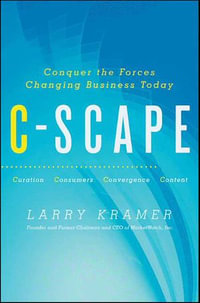
eTEXT
A Concise Introduction to Software Engineering
With Open Source and GenAI
By: Pankaj Jalote
eText | 31 January 2025 | Edition Number 2
At a Glance
eText
$84.99
Instant online reading in your Booktopia eTextbook Library *
Read online on
Not downloadable to your eReader or an app
Why choose an eTextbook?
Instant Access *
Purchase and read your book immediately
Read Aloud
Listen and follow along as Bookshelf reads to you
Study Tools
Built-in study tools like highlights and more
* eTextbooks are not downloadable to your eReader or an app and can be accessed via web browsers only. You must be connected to the internet and have no technical issues with your device or browser that could prevent the eTextbook from operating.
Software engineering has changed: A software project today is likely to use large language models (LLMs) for some tasks and will employ some open-source software. It is therefore important to integrate open source and use of LLMs in teaching software engineering - a key goal of this textbook.
This reader-friendly textbook/reference introduces a carefully curated set of concepts and practices essential for key tasks in software projects. It begins with a chapter covering industry-standard software, open-source tools, and the basics of prompt engineering for LLMs. The second chapter delves into project management, including development process models, planning, and team-working. Subsequent chapters focus on requirements analysis and specification, architecture design, software design, coding, testing, and application deployment.
Each chapter presents concepts, practical methods, examples, the application of LLMs, and the role of open-source software. A companion website provides some comprehensive case studies, as well as teaching material including presentation slides.
This textbook is ideal for an introductory course on software engineering where the objective is to develop knowledge and skills to execute a project—specifically in a team employing contemporary software engineering practices and using open source and LLMs. It is also suitable for professionals who want to be introduced to the systematic approach of software engineering and/or use of open source and LLMs.
The author is a distinguished professor at IIIT-Delhi and a well-known academic in software engineering. He has served as vice president in Infosys Technologies Limited and as a visiting researcher at Microsoft Corporation.
Reviews of the first edition:
"This book's title provides an excellent description of its content. ... This compact volume is organized into eight well-focused chapters containing numerous examples and well-designed self-test exercises. Includes an excellent collection of references and a very useful index. Summing Up: Highly recommended. Upper-division undergraduate through professional readers; two-year technical program students." (J. Beidler, Choice, Vol. 46 (6))
"Jalote's intention in this book is to present just enough material to teach beginning software engineers what they need to know to do a development project that carries a smallproduct from conception through delivery. The result is a short book ... making this sort of book very attractive as a text for introductory software engineering. ... topics are well chosen and their discussion is good." (Christopher Fox, ACM Computing Reviews)
Read online on
ISBN: 9783031743184
ISBN-10: 3031743180
Series: Undergraduate Topics in Computer Science
Published: 31st January 2025
Format: ePUB
Language: English
Publisher: Springer Nature
Edition Number: 2
You Can Find This eBook In
This product is categorised by
- Non-FictionComputing & I.T.Computer Programming & Software DevelopmentSoftware Engineering
- Non-FictionComputing & I.T.Computer Programming & Software DevelopmentCompilers & Interpreters
- Non-FictionComputing & I.T.Business Applications
- Non-FictionComputing & I.T.Computer ScienceMathematical Theory of Computation
- Non-FictionReference, Information & Interdisciplinary SubjectsResearch & InformationCoding Theory & Cryptology
- Non-FictionComputing & I.T.Computer Science























